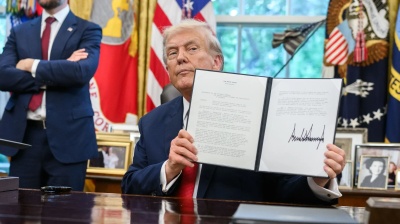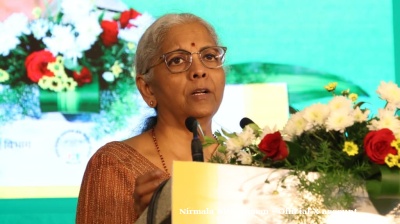Hungary marks the first anniversary of Clemency-Gate and the ascent of opposition leader Peter Magyar

Hungarian opposition leader Peter Magyar is commemorating the first anniversary of the social media post that sparked his political transformation, propelling him from an insider within the Fidesz ecosystem to one of Viktor Orban’s foremost challengers.
In his latest message, Magyar reflected on his resignation a year ago from all state-affiliated positions in protest against the government’s corruption and moral shortcomings, particularly in relation to the clemency scandal. He thanked his supporters, stating: "Millions are now writing the new history of Hungary together."
The 43-year-old former Fidesz cadre is scheduled to give an interview today on the same YouTube channel that provided him with a platform a year ago. In that interview, Magyar openly criticised the Orban regime, levelling sharp accusations against several ministers and revealing that a handful of families control half of Hungary's wealth. The revelations in the interview ignited a political firestorm and catapulted Magyar immediately into the spotlight. He quickly positioned himself as a reformist, claiming to stand against both Orban’s Fidesz regime and the old opposition, which he accused of being ineffective.
Magyar made his Facebook post a week after the clemency scandal erupted in early February, which became one of the biggest political crises in Hungary since Viktor Orban assumed power in 2010. The scandal involved a presidential pardon granted to the former deputy director of a children’s home, who had covered up the sexual abuse of minors by his superior.
The pardon, issued by President Katalin Novak, sparked public outrage, leading to the largest demonstration in 15 years, organised by a group of influencers. Viktor Orban attempted to distance himself from the developments, but as discontent grew, he was forced to sacrifice the first female president and Justice Minister Judit Varga, ex-wife of Magyar, who had co-signed the pardon.
The ruling nationalists were shaken by the scandal, which undermined the party’s carefully crafted moral superiority. In hindsight, political analysts have described it as a psychological turning point, a pivotal moment in domestic politics that could be seen as the beginning of the regime’s decline.
Despite government attempts to downplay the issue, Magyar’s revelations galvanised opposition sentiment and bolstered his credibility as an anti-corruption figure.
Magyar quickly capitalised on his rising popularity, announcing the creation of a new political movement, later named Tisza Party. Unlike previous opposition parties, Tisza was not built from the remnants of old anti-Orban forces but mobilised disillusioned Fidesz voters, independents and first-time voters.
Unlike the old opposition, Magyar toured the countryside, visiting small towns considered Fidesz strongholds. He filled town halls and rallies in the spring leading up to the June European Parliament elections, demonstrating a level of grassroots energy unseen in the opposition for years. Polls indicated that Tisza was rapidly gaining support, overtaking older opposition parties like DK, Momentum and Jobbik.
Just three months after its founding, Tisza achieved a remarkable election result, widely regarded as a political landslide.
In the June European Parliament election, which coincided with local government elections, Magyar’s new political formation received 1.25mn votes – more than all other opposition parties combined. The party garnered 30% of the popular vote, securing seven mandates in the European Parliament and ten seats in the Budapest Assembly, making it the holder of the balance of power.
Magyar called the election results a political landslide, with the biggest task ahead being the scaling up of his party for the 2026 elections.
Since the summer elections, Tisza has continued to gain ground and is now leading the polls ahead of Fidesz.
Faced with constant smear campaigns from Fidesz and its vast propaganda machine, the young party leader faces the daunting task of building a nationwide party infrastructure and fielding 106 strong candidates for the upcoming parliamentary elections. Critics question whether he can sustain his momentum and whether his movement will remain a one-man show or evolve into a structured political party.
For Fidesz, the real challenge may not be Magyar himself but the ongoing economic downturn, which could erode support for the ruling party. Analysts suggest that while Fidesz has made multiple strategic missteps since the clemency scandal, the deteriorating economic situation could pose an even greater threat to their hold on power.
As Hungary moves toward the next election cycle, the political landscape remains in flux, with Magyar's movement continuing to reshape opposition dynamics, while Fidesz struggles to regain its footing and take back the narrative.
News

Bangladesh seeks death penalty for former Prime Minister Hasina
Bangladesh’s interim administration led by Nobel laureate Muhammad Yunus has requested the country’s criminal tribunal impose the death penalty on former Prime Minister Sheikh Hasina

Trump authorises CIA covert operations in Venezuela to topple Maduro
The White House has acknowledged granting the Central Intelligence Agency sweeping powers to conduct covert operations aimed at unseating President Nicolás Maduro, the NYT reported.

India’s finance minister to miss upcoming IMF and World Bank meetings
India’s Finance Minister Nirmala Sitharaman will not attend this week’s annual meetings of the International Monetary Fund and World Bank in Washington, as trade negotiations between New Delhi and Washington remain unresolved.

Young Ukrainians asylum seekers fleeing the war for Germany surges
The number of young Ukrainian fleeing the war and seeking asylum in Germany has surged, following Ukraine’s decision to partially lift its travel ban for men aged 18 to 22, according to figures from the German Interior Ministry.



